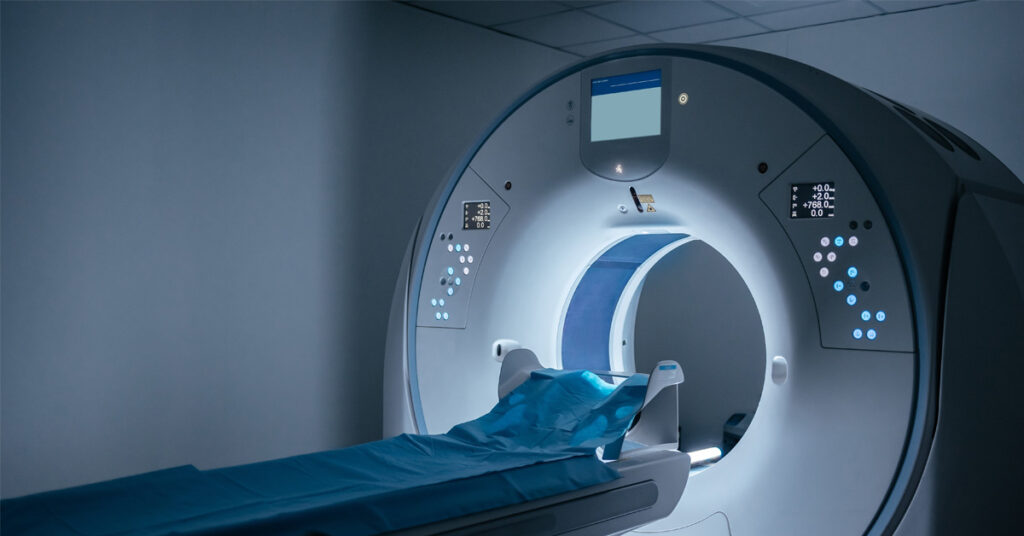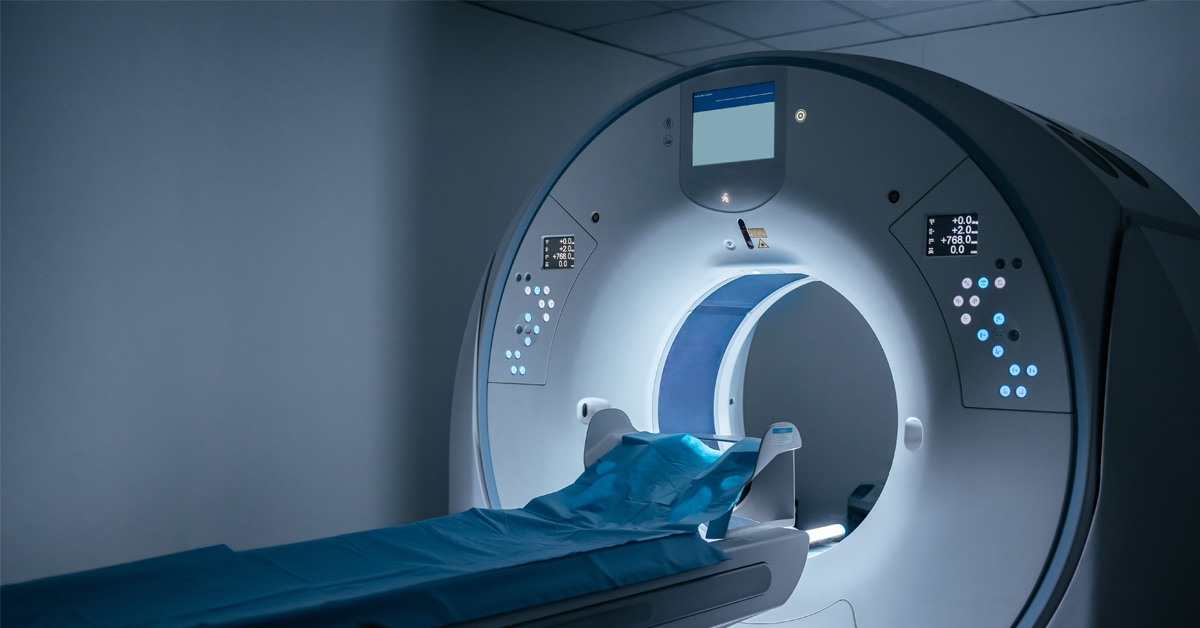
Many men first hear about prostate MRI after a PSA test comes back high or a digital rectal exam raises questions. At that point, it’s natural to wonder: Will MRI show prostate cancer?
MRI has become an important tool in prostate care. That’s because it offers a detailed view of the prostate and the tissues around it. Its ability to highlight subtle changes helps doctors spot areas that may need closer evaluation. This added clarity often guides the next steps. It can help you and your doctors decide whether or not to move forward with a biopsy.
Understanding the strengths and limits of MRI can help you feel more informed as you decide what comes next with your prostate concerns.
What is MRI?
Magnetic resonance imaging, or MRI, is an imaging technique that uses strong magnets and radio waves to produce detailed images of the body’s organs and soft tissues.
Unlike X-rays or CT scans, MRI doesn’t use radiation. It captures subtle differences in tissue density and composition, allowing doctors to see inside the body with remarkable detail.
The prostate sits just below the bladder and surrounds the urethra. Because of its deep location in the pelvis, the prostate can be difficult to evaluate using standard imaging. However, MRI offers a clear, layered view of both the gland and nearby structures.
Will MRI Show Prostate Cancer?
MRI can help identify prostate cancer. It’s become one of the most valuable tools in prostate cancer detection and management. This is especially true with a specialized form called multiparametric MRI (mpMRI).
This advanced scan combines several imaging sequences to assess both the anatomy and function of the prostate. This helps doctors see whether certain areas look suspicious for cancer.
MRI can:
- Identify areas of concern within the prostate that may represent clinically significant cancer.
- Guide biopsies by mapping the precise location of suspicious tissue so doctors can sample the right area.
- Reduce unnecessary biopsies for men whose scans show no concerning findings.
- Assist in staging by showing whether cancer has extended beyond the prostate capsule or is in nearby structures. To find out if prostate cancer has spread beyond the pelvis, other imaging, such as CT scans, bone scans, or PET scans, may be used.
- Monitor disease over time for men on active surveillance. It can help detect subtle changes that may signal growth or progression.
MRI is powerful, but it has limits. It can reveal differences in texture, density, and blood flow that suggest cancer. But, some small or slow-growing tumors may not stand out clearly. Occasionally, noncancerous conditions like inflammation can mimic cancer on MRI.
While MRI can highlight abnormal tissue, it cannot confirm cancer on its own. Removing a small tissue sample for examination, called a biopsy, is still the only way to make a definitive diagnosis.
How Does MRI Fit Into the Diagnostic Process?
An MRI is usually ordered after an abnormal PSA test or DRE. It helps determine whether a biopsy is necessary and, if so, guides the location for taking tissue samples.
During a targeted biopsy, doctors may use MRI-ultrasound fusion technology. This is a process that overlays MRI images onto live ultrasound to precisely direct biopsy needles into the suspicious areas seen on MRI. Fusion biopsy increases accuracy and helps avoid over-sampling of healthy tissue.
Even when an MRI appears normal, your doctor may still recommend a biopsy if your PSA remains high or other risk factors are present.
Learn More About MRI for Prostate Cancer
An MRI helps identify areas of the prostate that require closer examination. It improves biopsy precision and reduces unnecessary procedures for many men. Still, MRI works best as part of a coordinated effort to identify prostate cancer. Other components include PSA testing, physical exams, and biopsy when needed.
If you’ve been asking the question “Will MRI show prostate cancer?”, it’s time to talk with a urologist.
Don’t delay – schedule an appointment to learn more about prostate cancer testing with the experts in Clive, IA, and the Des Moines area.

